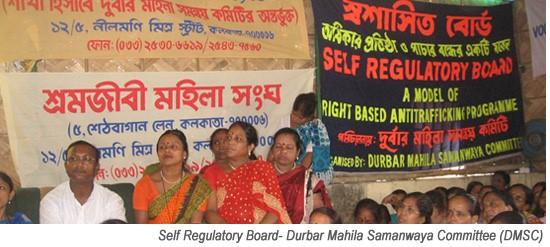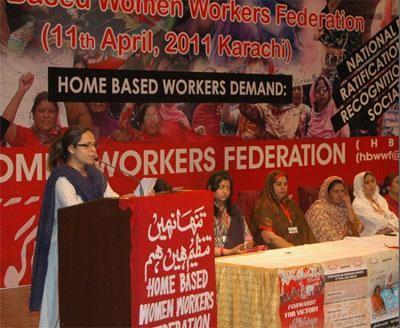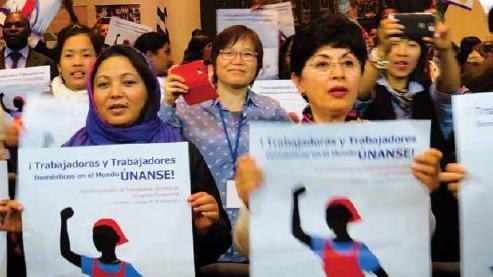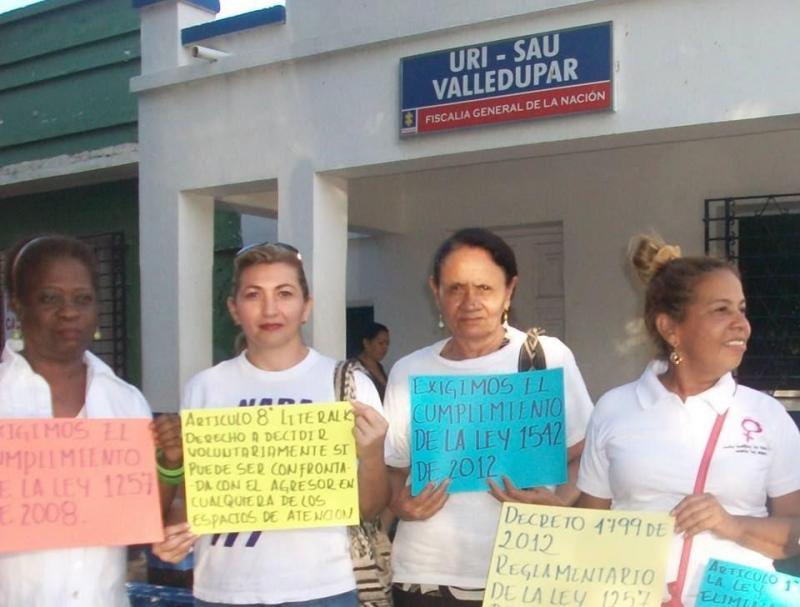When organizations and movements are asked what they need to grow stronger, many are clear about their answer - better relationships and alliances across their sector and across movements.
Many organizations know that stronger organizing and an empowered leadership will bring out their powerful voice and move us closer to a just world. This makes the Forum in Brazil relevant and responsive to the movement-building needs of many organizations. It’s a timely space for groups to converge and break our isolation, learn deeply from one another and be inspired by the myriad ways incredible organizing is happening right now in response to formidable threats and attacks.
What Makes Your Movement Stronger?
1. The Durbar Mahila Samanwaya Committee & Movement of Sex Workers
Durbar Mahila Samanwaya Committee, Kolkata, India is a collectivization of 65000 sex workers, functions as an exclusive forum of female, male and transgender sex workers in West Bengal, India.
- We grow stronger when we can build strong alliances with the unorganized labor sector to position the sex workers’ movement as part of broader Indian labor movement. We need to integrate the sex workers’ movement with other coalitions fighting against gender based and sexual violence. It will be critical to have a strong national level advocacy and lobbying to end criminalization of sex work. As well as collaborative efforts to encourage national level research on sex, sexuality and sexual minorities across all sections of the society. The creation of a strong support base and the challenging of stereotypes through engagement with the media and academia will build our strength as well.

2. HomeNet South Asia
HomeNet aims to build regional solidarity among Homebased Workers, especially women workers, and empower them to lead a life of dignity, free of poverty through obtaining decent work and social protection, within a rights based framework.
- There are 100 million HBWs worldwide who contribute to national and global economies. We need advocacy around that fact and ensure that we have conducive and supportive Governments and climate –supportive policies and programmes, that we link up with trade unions and get their support. We need to get support from manufacturers, suppliers and contractors and make alliances with other informal worker’s networks and organisations. More research and evidence based advocacy will help enhance the capacities of HBW leaders.

3. National Network of Immigrant & Refugee Rights (NNIRR)
NNIRR works to defend and expand the rights of all immigrants and refugees in the US, regardless of immigration status.
- What we need to get stronger is support for grassroots organizing and empowerment initiatives among diverse immigrant and refugee communities! There needs to be greater awareness of the multiple ways in which immigration policy affects the day-to-day lives of immigrants and their families and an understanding of the “root causes” of international migration and opportunities to address them so that migration is an “option” and not a necessity. Stronger multi-sector alliances among migrant, women, labor, faith, environmental and other social and economic justice groups will make all of us stronger as well as deliberate outreach and inclusion of migrant and migrant rights groups in broader initiatives, events and campaigns for rights and justice.

4. International Domestic Workesrs Federation (IDWF)
IDWF is a membership-based global organization of domestic and household workers. We believe domestic work is work and all domestic and household workers deserve to enjoy the same rights as all other workers. Our objective is to build a strong, democratic and united domestic/household workers global organization to protect and advance domestic workers’ rights everywhere.
- We become stronger when more domestic workers, including migrant domestic workers are organized – many still do not have a voice! We need strong women’s leadership – more women domestic workers have to become leaders for a sector of which 73% are women! We will win when domestic workers are guaranteed basic human and labor rights, including freedom of movement and we have built strong alliances with other sectors and movements – feminists, informal workers, migrants, Indigenous communities.

5. Red de Voceros y Voceras Pára la Ya! Nada justifica la Violencia contra las Mujeres
Red de Voceros y Voceras is a network of spokespeople from Valledupar, formed by a group of people fighting for the rights of women.
- Economic stability is critical to the movement. At the moment we do not have the resources to access many places where the state does not reach and where our presence as activists is requested.

Blog series
This piece is part of a series of blog posts sharing a selection of reflections and thoughts from a range of movements organizing for justice around the word.
